Diversity, Equity, and Inclusion
Why We Share Our Diversity, Equity, and Inclusion (DEI) Strategy
The Jim Joseph Foundation believes that Jewish learning and the Jewish community will be richer when leaders, educators, and participants better reflect the full diversity of today’s Jewish population. Working toward this vision has been a priority of the Foundation for many years. We became more explicit about this work when we updated our strategy in 2019 and added “engaging diverse voices and partners” as one of our core guiding principles.
At that time, we committed to prioritizing this principle in all our grantmaking strategies, in our hands-on work with grantee-partners, and in every department of the Foundation. Today, the desire to hear and learn from diverse voices and perspectives is part of the DNA of the Foundation. This practice is resonant with Jewish learning and is enshrined in the Talmud (primary source of Jewish religious law and theology) where different voices engage over the years through their own lived experience and context. There are many approaches that nonprofits utilize for culture change work. We hope that the information below offers a helpful look into what the Jim Joseph Foundation has done and continues to do in this space.
Embedding the Principle of “Engaging Diverse Voices and Partners” in Our Work with Grantee-Partners
- Develop tools for grantee-partners to track diversity of PJLE, EJLE, or R&D program participants as a component of ongoing monitoring.
- Support and encourage grantee-partners’ efforts to:
- recruit leaders, educators, and participants from under-represented populations;
- invest in entrepreneurs, intrapreneurs, and influencers from under-represented populations;
- design learning experiences that are accessible to and empowering of all participants;
- educate about diversity within the Jewish community and celebrate that diversity as a part of educational programming; and
- train leaders and educators to advance DEI efforts.
- Invest in experiments that develop and spread new forms of Jewish learning and expression that will be accessible and empowering to individuals from under-represented audiences.
- Listen to and learn from individuals from under-represented populations.
- Review and update internal policies around DEI.
- Invest in internal training around DEI.
- Further diversify our team.
- Share what we are learning through one-on-one conversations, blogs, presentations, disseminating research, hosting convenings, and other appropriate communications.
- Serve as a platform that elevates the voices of under-represented populations.
- Diversity within the Jewish community.
- Factors that influence participation and leadership of individuals from under-represented populations.
- What kinds of interventions are most effective at shifting cultures to be more diverse, equitable, and inclusive.
How the Jim Joseph Foundation Embarks on Culture Change

The Jim Joseph Foundation has undertaken a process, which began in January 2020, that includes a deep review and update of our own internal policies and procedures with an equity focus, conducting one-on-one interviews with all professional team members, multiple trainings facilitated by external facilitators for our team members, and goal setting exercises by each functional team. We have periodic internal learning and discussion groups addressing DEI, all of which inform language the Foundation uses and shape our approaches to grantmaking and evaluation.
Across the organization, we are committed to elevating and including diverse voices and perspectives both internally and in our external communications. This includes how we build teams, seek consultants, make grants, build internal processes, and share learnings and information. Each functional team also has developed DEI goals and strategies that it monitors itself against.
More than a Phrase: Our Beliefs and Practices to Advance DEI
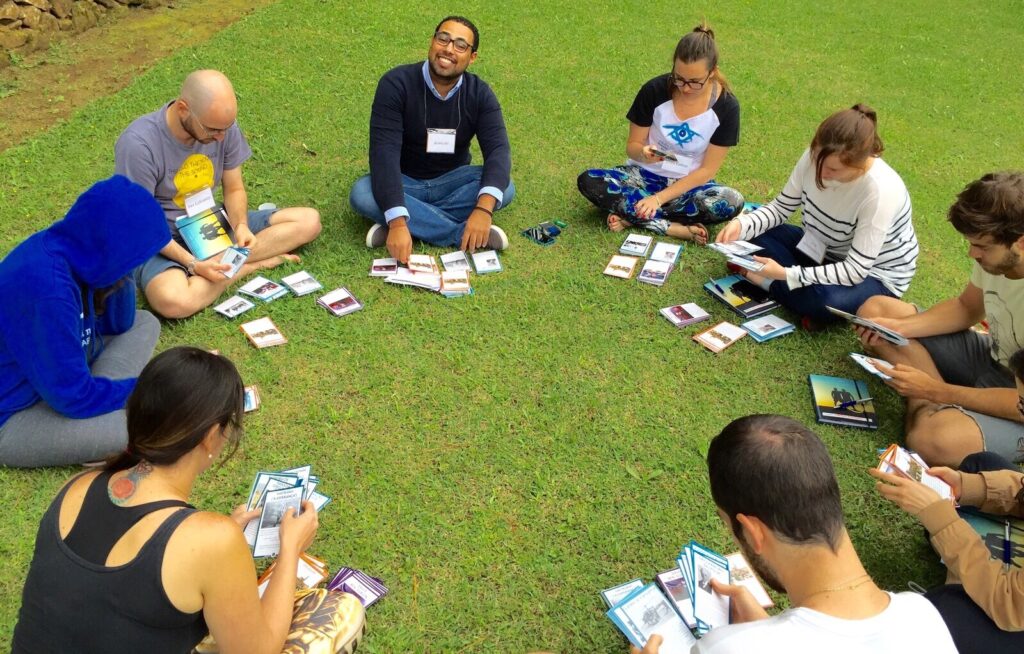
The intentionality with which we aim to learn from diverse voices is a recognition that the dominant culture in which we live does not provide equal opportunity for all voices and perspectives to be heard, and that for this work to be successful it requires culture change within our communal institutions, including the Foundation itself. We have explored our own assumptions and looked to uncover bias in pursuit of creating spaces for perspectives to be shared, heard, learned from, and incorporated into our communal educational models going forward.
We believe a proactive intention to create a culture of belonging and to bring in a multitude of voices makes for the best decision making and has the greatest potential to expand opportunities for connection, meaning, and purpose for young Jews, their families, and friends.
Centering the voices, perspectives, and needs of our diverse community enables the Foundation to better achieve our goals by making Jewish communal life meaningful for and accessible to all Jews, their families, and friends.
Learn more about our internal culture and staff values.
Click on the widget in the lower left corner of our website to learn how our website is accessible to more people.
Organizations and Resources We Turn to for Guidance and Learning
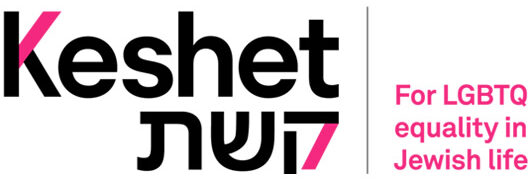
Keshet
Keshet works for the full equality of all LGBTQ Jews and our families in Jewish life. It strengthens Jewish communities. It equips Jewish organizations with the skills and knowledge to build LGBTQ-affirming communities; creates spaces in which all queer Jewish youth feel seen and valued; and advances LGBTQ rights nationwide.

Jews of Color Initiative
The Jews of Color Initiative’s mission is to advance racial equity in the U.S. Jewish community by centering the leadership of Jews of Color and ensuring that our communities and institutions reflect the multiracial reality of the Jewish people.
➔ Beyond the Count: Perspectives and Lived Experiences of Jews of Color
This report uses survey and interview data of a complex fabric of JoC identities, lived experiences, and perspectives.
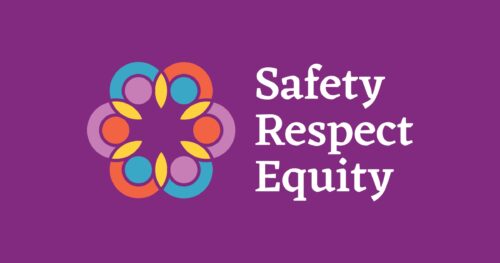
SafetyRespectEquity (SRE)
SRE is an initiative to ensure safe, respectful, and equitable Jewish workplaces and communal spaces. Inspired by broader national movements and informed by Jewish values and traditions, SRE is specifically committed to addressing sexual harassment, sexism, and gender discrimination. It aims to help support, coordinate and amplify change in individual organizations as well as accelerate a broader culture shift.
➔ SRE Standards Toolkit
The toolkit is meant to serve as a starting point for organizations that are working toward implementing SRE’s Standards. Its resources and checklists should be used as a supplement to other training and professional counsel.

SVARA
SVARA is a traditionally radical yeshiva dedicated to the serious study of Talmud through the lens of queer experiences. SVARA’s unique pedagogy makes Talmud study in the original accessible—for the first time in Jewish history—to all who want to learn. At SVARA, everyone—queer, straight, trans, alef-bet beginners, experienced talmudists, secular, religious, Jews, non-Jews—everyone learns together in a mixed-level bet midrash that recognizes as crucial the insights of all those on the margins.
➔ Learn more from the Foundation's learning session with Rabbi Benay Lappe, Founder and Rosh Yeshiva of SVARA.

JIMENA
JIMENA works to achieve universal recognition for the heritage and history of the 850,000 indigenous Jewish refugees from the Middle East and North Africa. Its programs aim to ensure that the accurate history of Mizrahi and Sephardic Jews is incorporated into mainstream Jewish and Middle Eastern narratives in order to create balance in attitudes, narratives, and discourse about Middle Eastern refugees and the modern Jewish experience.
➔ Learn more from the Foundation’s learning session with Sarah Levin, Executive Director, JIMENA.
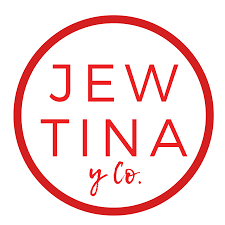
Jewtina
Jewtina y. Co nurtures Latin-Jewish community, identity, leadership and resiliency via cohort experiences, community storytelling, culturally-sustaining learning resources and workshops, and live connection points.

Leading Edge
Leading Edge envisions a sector of Jewish organizations in which high-quality, diverse leaders and talent are ready and supported to build great places to lead, work, and serve. It helps Jewish organizations improve their workplace culture and leadership so that they can better achieve their missions.
➔ The Gender Gap in Jewish Nonprofit Leadership: An Ecosystem View
Addressing five causes can make significant progress in closing the persistent and large gender gap among CEOs at Jewish nonprofit organizations.
The Leading Edge Employee experience survey helps organizations understand and improve how their employees experience work. One of its core elements is a set of measures around Diversity, Equity, and Inclusion.
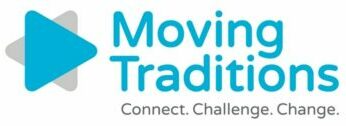
Moving Traditions
Moving Traditions emboldens Jewish youth to challenge gender stereotyping and other forms of discrimination and to pursue personal wholeness (shleimut), caring connections (hesed), and a just and equitable world (tzedek).
➔ Learn more from the Foundation's learning session with Deborah Meyer, founder and former CEO, and Rabbi Tamara Cohen, VP of Program Strategy, Moving Traditions
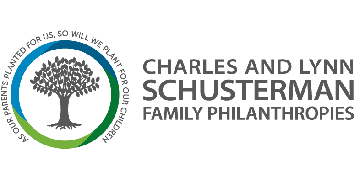
Charles and Lynn Schusterman Family Philanthropies’ More Than Numbers: A Guide Toward Diversity, Equity, and Inclusion (DEI) in Data Collection
This guide is for organizations that seek to apply a DEI lens to their internal data collection processes and assess and improve how they collect constituent information through tools such as alumni surveys and program evaluations. It is a starting point—to spark inquiry, conversation, disruption and, ultimately, better data collection practices within organizations.

Pew Research Center’s Jewish Americans in 2020 sections on diversity and demographics
The 2020 report Jewish Americans includes two sections especially relevant to DEI efforts. Chapter 9) Race, ethnicity, heritage and immigration among U.S. Jews; and Chapter 10) Jewish demographics.
The Jim Joseph Foundation utilizes many resources from grantee-partners, peer funders, and others in the field to inform its approach to DEI. We are always learning and welcome others to learn with us. For more information, please reach out to [email protected].